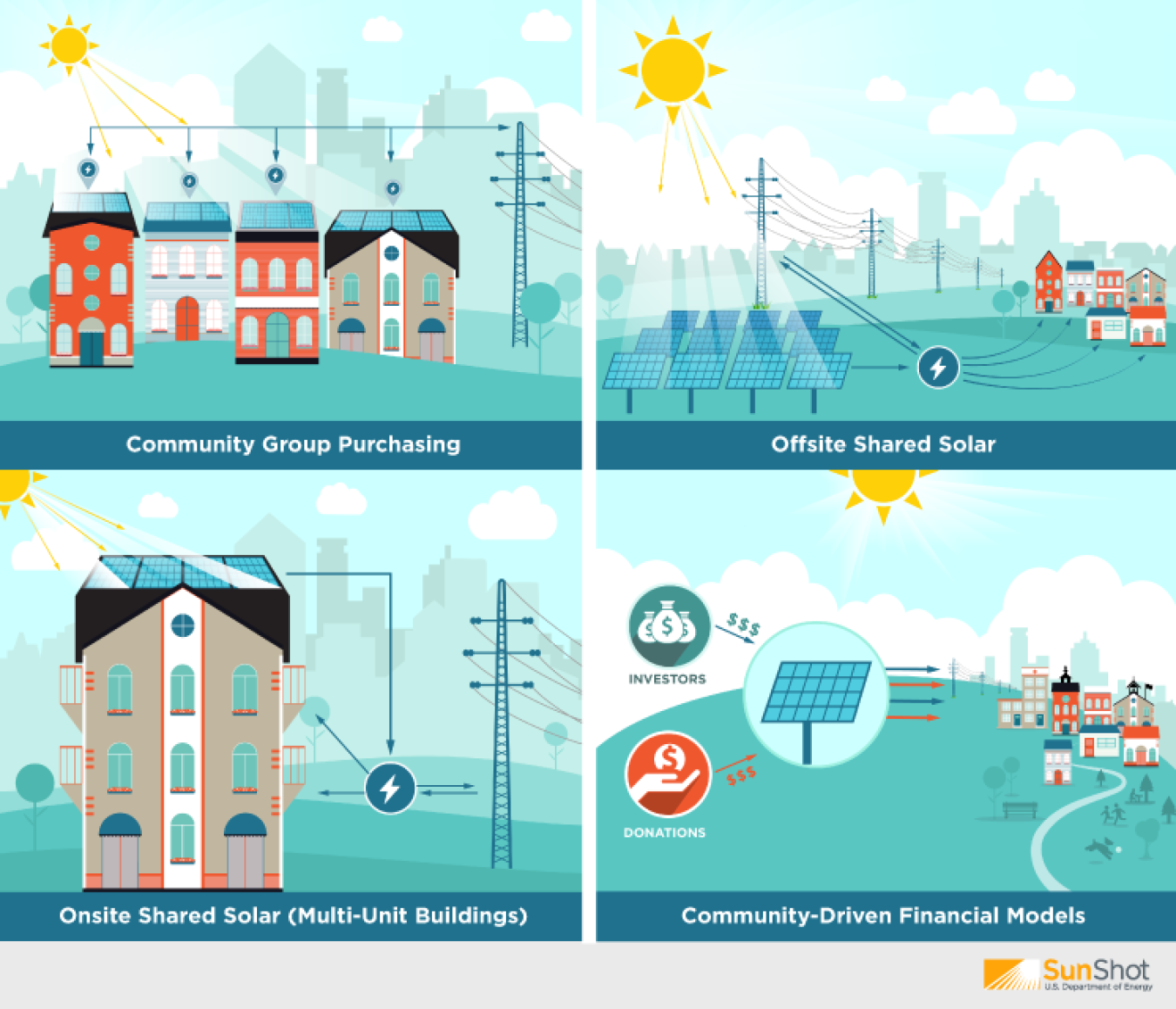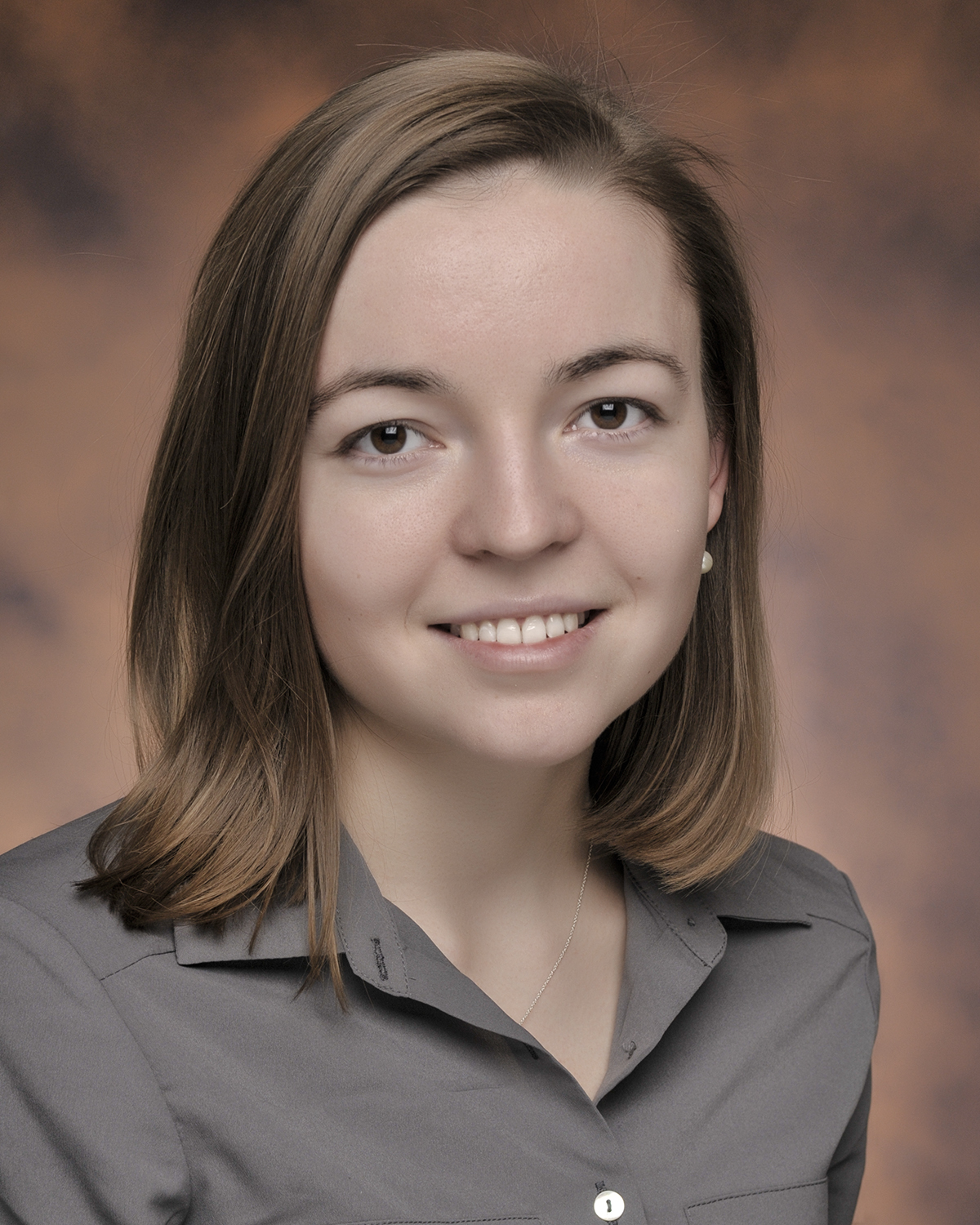Every three weeks, the U.S. brings as much solar power online as we installed for the entire year in 2008. Did you know you can still reap the benefits of this solar boom without installing anything at your home? Shared solar programs, such as the one...
Office of Critical Minerals and Energy Innovation
January 29, 2015
Innovative solar business models like these help make it easier for communities to increase solar deployment by making it faster, easier and cheaper for people to invest in solar together and enabling multiple participants to benefit directly from the energy produced by one solar array. | Image by SunShot Initiative
A year ago, I wrote a blog post about how shared solar programs are expanding access to renewable energy for all Americans. Rather than limiting solar energy options to homeowners with ample roof space, shared solar programs enable renters, neighbors, and even small businesses, local nonprofits, and other entities to benefit from the solar energy generated by panels in one array.
A major draw of shared solar is its potential for flexibility. For example, programs can be designed to encourage participation by low-income urban customers, to stabilize energy bills for mom-and-pop shops on Main Street, and to create partnerships between rural communities with available land and nearby cities with high electricity demand. Strategically located shared solar arrays can help cities boost local economic development and help utilities by providing electric grid benefits, such as responding to and meeting increased demand.
Last April, the Energy Department’s SunShot Initiative introduced Solar Market Pathways, a federal funding program designed to support local approaches to develop multi-year plans, streamline deployment, and launch innovative programs that spur solar market growth in communities all across the U.S. The 15 selected projects include regional, state, municipal, university, and utility efforts to provide business certainty and establish a clear path for increased solar deployment over the next five to 10 years.
Shared solar business models are featured prominently in several of these projects. The Cook County, Illinois Department of Environmental Control is identifying and establishing community solar models that can benefit multi-unit housing tenants and low-income customers in the Chicago area. The California-based Center for Sustainable Energy is reducing barriers to shared solar programs for multi-unit buildings by expanding the awareness, effectiveness, and use of the state’s virtual net metering tariff that enables a multi-meter property owner to allocate a solar system's energy credits to several tenants.
Several Solar Market Pathways awardees are developing shared solar programs to help utilities provide better service to their customers. Extensible Energy Inc. is working with several utilities, including the Sacramento Municipal Utility District and Albuquerque, New Mexico-based PNM, to develop new market-based business models for community solar using strategic solar technologies and design, systematically prioritizing local sites, and integrating demand response programs and energy storage. On the East Coast, the Virginia Electric and Power Company (Dominion Power) is working with representatives from state government, research institutions, environmental organizations, local communities, and solar businesses to develop and refine sustainable models for solar deployment, including shared solar. The Solar Electric Power Association is conducting comprehensive research on the intersection of community solar business models and consumer demographics and marketing to streamline the design of more attractive, cost-effective, and standardized programs.
Additionally, two Solar Market Pathways awardees seek to expand solar deployment in college and university settings. The Council of Independent Colleges in Virginia is working with 15 of its member colleges and their hometown communities to streamline solar deployment on college campuses, while the Midwest Renewable Energy Association is facilitating on-campus solar investment by university governance boards and endowments at Illinois State University, Missouri University of Science and Technology, Purdue University, and the University of Minnesota.


